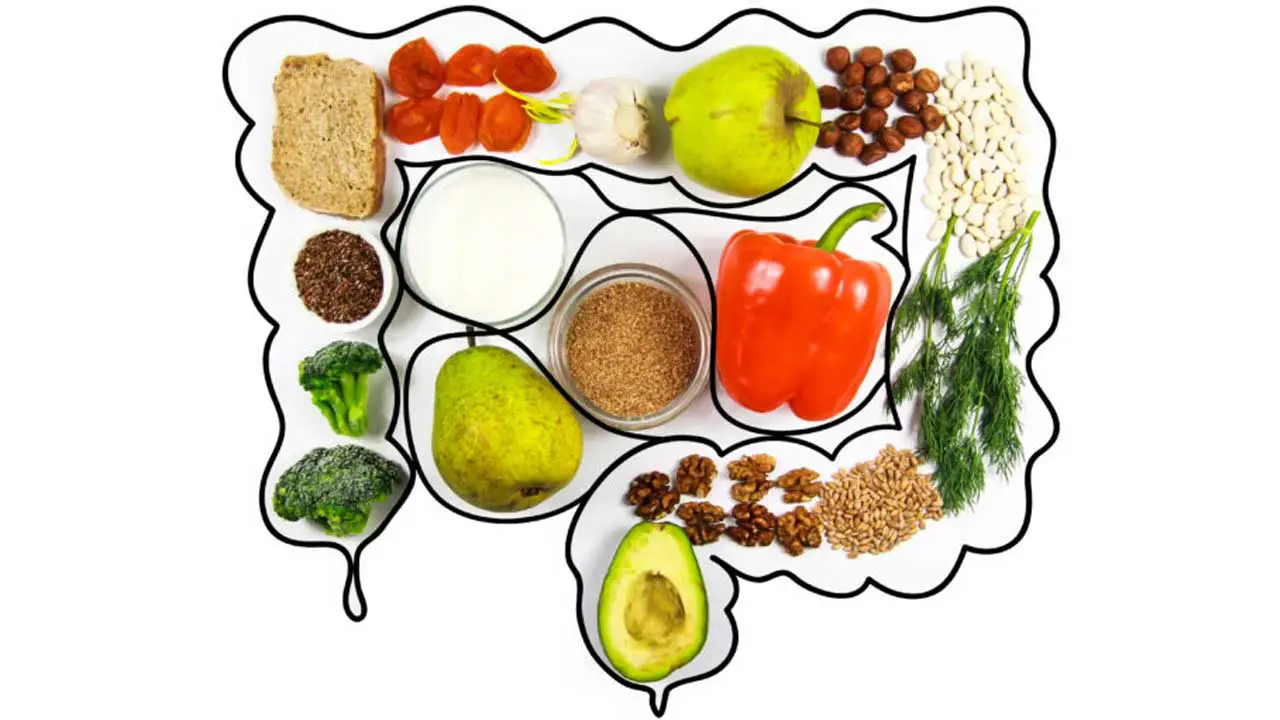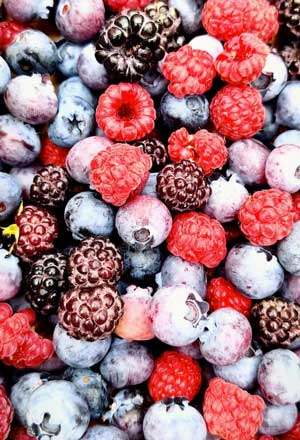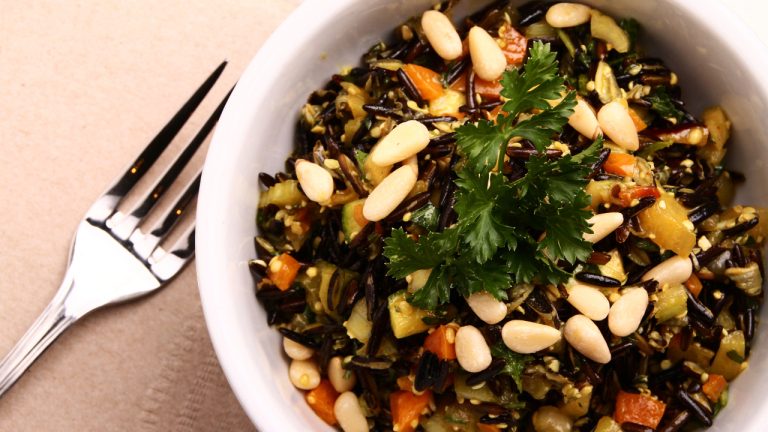Foods That Don’t Cause Bloating: A Guide to Happy Digestion

ListedFit is reader-supported. When you buy through links on our site, we may earn a small commission.
For many people, bloating can be a frustrating and uncomfortable issue. Bloating occurs when the abdomen feels full and tight due to gas buildup in the digestive system. While there are many potential causes of bloating, certain foods have been shown to be more likely to cause bloating than others.
Fortunately, there are also many foods that are less likely to cause bloating. These foods can help individuals who are prone to bloating to feel more comfortable and avoid discomfort. By going for more of these foods in your diet, you may be able to reduce your bloating symptoms and feel better overall.
Table of Contents
Some of the best non-gassy foods to avoid gas and bloating include animal proteins, leafy greens like spinach, fermented foods like kefir, and oats. Many fruits are also good options, but should still be eaten in moderation.
By choosing these foods, individuals can feel more comfortable and avoid the discomfort and frustration that often comes with bloating.
Aiming for Low-FODMAP Foods
What are FODMAPs?
FODMAPs are certain types of carbohydrates found in foods that can cause digestive discomfort, particularly for individuals with irritable bowel syndrome (IBS) and/or small intestinal bacterial overgrowth (SIBO). These carbohydrates are not easily absorbed by the small intestine and can be fermented by gut bacteria, causing gas and bloating.
Some common high-FODMAP foods include:
- Wheat and other gluten-containing grains
- Lactose-containing dairy products
- Onions and garlic
- Beans and lentils
- Apples, pears, and stone fruits
Low-FODMAP Foods
The low-FODMAP diet is a popular approach to managing IBS and SIBO symptoms. It involves restricting high-FODMAP foods and increasing intake of low-FODMAP alternatives.
Some low-FODMAP foods include:
| Proteins | Vegetables | Fruits | Grains |
|---|---|---|---|
| Beef | Bell peppers | Bananas | Oats |
| Chicken | Bok choy | Blueberries | Quinoa |
| Eggs | Carrots | Cantaloupe | Rice |
| Fish | Cucumbers | Grapes | Sourdough bread |
| Lamb | Eggplant | Oranges | Gluten-free pasta |
| Pork | Green beans | Pineapple | Polenta |
| Tofu | Lettuce | Strawberries | Wild rice |
It is important to note that not all low-FODMAP foods will work for everyone. Some individuals may still experience symptoms with certain low-FODMAP foods, and it is best to work with a healthcare professional or registered dietitian to determine a personalized approach to managing digestive symptoms.
High-Fiber Foods
High-fiber foods are an important part of a healthy diet. They can help regulate digestion, lower cholesterol levels, and reduce the risk of heart disease, stroke, and diabetes. However, some high-fiber foods can also cause bloating and gas.
Here are some tips on how to incorporate high-fiber foods into your diet without experiencing uncomfortable symptoms.
Benefits of High-Fiber Foods

Fiber is a type of carbohydrate that the body cannot digest. It passes through the digestive system relatively intact, adding bulk to stool and helping to regulate bowel movements.
Soluble fiber, found in foods like oats, beans, and fruits, can also help lower cholesterol levels and improve blood sugar control.
According to the American Heart Association, adults should aim for at least 25 grams of fiber per day from food sources. However, many Americans fall short of this goal. Incorporating high-fiber foods into meals and snacks can help boost fiber intake and improve overall health.
Examples of High-Fiber Foods
Some high-fiber foods that are less likely to cause bloating and gas include:
| Berries (raspberries, blackberries, strawberries) | Non-starchy vegetables (spinach, kale, broccoli, carrots) |
| Nuts and seeds (almonds, chia seeds, flaxseeds) | Whole grains (quinoa, brown rice, oats) |
| Legumes (lentils, chickpeas, black beans) | Low-fat dairy products (yogurt, cottage cheese) |
When increasing fiber intake, it’s important to do so gradually and drink plenty of water to help prevent constipation and discomfort. Adding high-fiber foods to meals and snacks can be as simple as topping oatmeal with berries, adding beans to a salad, or snacking on a handful of almonds.
Anti-Inflammatory Foods
What are Anti-Inflammatory Foods?
Anti-inflammatory foods are those that can help reduce inflammation in the body. Inflammation can be caused by a variety of factors, including stress, pollution, and poor diet. Chronic inflammation has been linked to a range of health problems, including heart disease, cancer, and diabetes. Eating a diet rich in anti-inflammatory foods may help reduce the risk of these conditions.
Examples of Anti-Inflammatory Foods
Some examples of anti-inflammatory foods include:
- Tomatoes
- Olive oil
- Green leafy vegetables, such as spinach, kale, and collards
- Nuts like almonds and walnuts
- Fatty fish like salmon, mackerel, tuna, and sardines
- Fruits such as strawberries, blueberries, cherries, and oranges
These foods contain anti-inflammatory compounds such as omega-3 fatty acids, antioxidants, and polyphenols.
They can help reduce inflammation in the body and promote overall health. It’s important to note that not all foods marketed as “anti-inflammatory” are actually beneficial. Some products may contain added sugars, preservatives, and other additives that can actually increase inflammation.
To get the full benefits of anti-inflammatory foods, it’s best to stick to whole, unprocessed foods.
In addition to eating anti-inflammatory foods, it’s also important to avoid foods that can cause inflammation. These include processed foods, sugary drinks, and foods high in saturated and trans fats.
By making these dietary changes, you can help reduce inflammation in the body and promote overall health.
Probiotic Foods
What are Probiotic Foods?
Probiotic foods contain live bacteria that are beneficial to the digestive system. These foods can help promote a healthy gut flora, which can reduce bloating and improve overall digestion. Probiotics can be found in fermented foods such as yogurt, kefir, kimchi, kombucha, and sauerkraut.
Examples of Probiotic Foods

- Yogurt is a popular probiotic food that is easy to find in most grocery stores. It contains live and active cultures that can help reduce bloating and improve digestion.
- Kefir is another fermented dairy product that is rich in probiotics. It has a tangy flavor and can be enjoyed as a drink or used in smoothies.
- Kimchi is a traditional Korean dish made from fermented cabbage and other vegetables. It is high in probiotics and has a spicy, tangy flavor that pairs well with rice dishes and soups.
- Kombucha is a fermented tea that is also rich in probiotics. It has a slightly sweet taste and can be found in most health food stores.
- Sauerkraut is a German dish made from fermented cabbage. It is packed with probiotics and has a sour, tangy taste that goes well with sausages and other meats.
Other examples of probiotic foods include miso, tempeh, and pickles.
Overall, incorporating probiotic foods into your diet can help reduce bloating and improve digestion. However, it is important to note that some people may experience temporary side effects such as gas and constipation when first introducing probiotics into their diet.
Conclusion
When it comes to avoiding bloating, it’s important to remember that everyone’s body is different.
There are some general guidelines that can help reduce the chances of bloating.
First, it’s important to avoid foods that are known to cause bloating, such as beans, broccoli, onions, and carbonated drinks. Instead, opt for foods that are low in FODMAPs, such as gluten-free bread, rice, oats, quinoa, and berries.
Second, it’s important to eat slowly and chew food thoroughly to aid in digestion. Drinking plenty of water throughout the day can also help keep the digestive system functioning properly.
Finally, incorporating more physical activity into daily routine can also aid in digestion and reduce the likelihood of bloating. Even a short walk after a meal can help get things moving.
By following these guidelines and paying attention to how their body reacts to certain foods, individuals can reduce the chances of bloating and feel more comfortable and confident in their daily lives.
FAQs
Do Eggs Cause Bloating?
While eggs are not generally considered a common cause of bloating, they can cause bloating in some individuals, especially those with an intolerance or sensitivity to eggs.
* Firstly, if someone has an intolerance or sensitivity to eggs, consuming them might lead to digestive discomfort and bloating.
Egg intolerance is typically caused by a difficulty in digesting proteins found in eggs, such as albumin, which can lead to symptoms like bloating, gas, diarrhea, and stomach cramps. It’s important to note that egg intolerance is different from an egg allergy, which involves an immune response and can be more severe.
* Secondly, eggs can sometimes cause bloating if they are not cooked properly or if they are consumed along with other foods that are difficult to digest. For instance, eating eggs with high-fat, greasy, or processed foods might result in bloating or digestive discomfort.
* Lastly, it’s worth mentioning that individual responses to different foods can vary greatly. Some people may have no issues with eggs, while others may be more sensitive to them.
If you think eggs could be causing bloating for you, try keeping a food diary to track your symptoms and identify any patterns.
Author
Latest entries
 FitnessAugust 19, 2023Yohimbe vs Yohimbine: A Quick Comparison Guide
FitnessAugust 19, 2023Yohimbe vs Yohimbine: A Quick Comparison Guide AshwagandhaJune 16, 2023Is Ashwagandha Good for Working Out? Key Benefits Explored
AshwagandhaJune 16, 2023Is Ashwagandha Good for Working Out? Key Benefits Explored Sports HeadphonesMay 25, 2023Why Your EarBuds Keep Falling Out – Quick and Easy Solutions
Sports HeadphonesMay 25, 2023Why Your EarBuds Keep Falling Out – Quick and Easy Solutions Nike ShoesMay 12, 2023Do Nikes Run Big or Small? Decoding the Perfect Fit
Nike ShoesMay 12, 2023Do Nikes Run Big or Small? Decoding the Perfect Fit
Affiliates:
This post may contain affiliate links that at no additional cost to you, the site may earn a small commission. We only recommend products we would use ourselves and all opinions expressed on this site are our own.
General Advice:
The information provided in this article is for general informational purposes only. It is not intended as a substitute for professional advice. Always consult with a qualified healthcare professional before starting any new diet, exercise program, or making changes to your health routine.
Accuracy Advice:
While we strive to provide up-to-date and accurate information, the content in this article may not reflect the most current research or medical guidelines. We encourage readers to do further research and consult with professionals for more personalized advice.
Our Recommendations:
The products and services mentioned in any of our articles are recommended based on our independent research and personal experience. We are not sponsored by any company. We aim to suggest products and services we believe are of high quality and could be beneficial to our readers.






